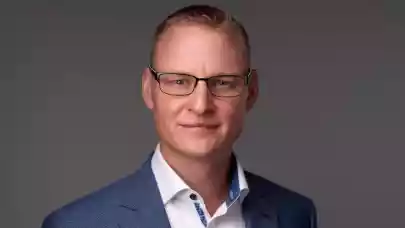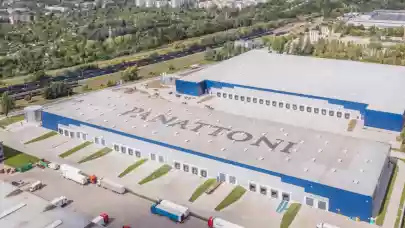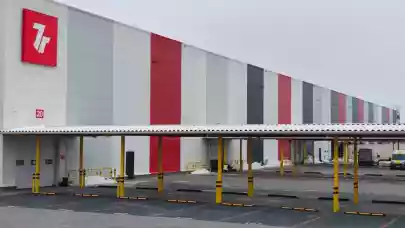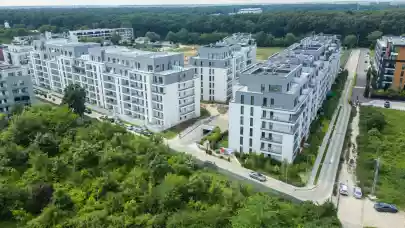
Apart from the Northeastern part of Hungary, home of many developments of Infogroup, Southern counties also have huge industrial potential which should be materialised, says Ádám Székely, Managing Director of Infogroup. Property Forum asked him about the ways and risks of warehouse and logistics developments in the country.
Over the last 2-3 decades, investors did not favour parts of Central and Eastern Hungary. What made Infogroup concentrate on these counties?
We have a historical tie to North-Eastern Hungary as our family originates from that area. Besides that, we’ve always believed that the region has a huge potential based on its industrial roots, educational infrastructure, available labour force and more advanced transportation connections. Infogroup has always seen the potential in niche opportunities, which we believe to be found in this region. It has taken quite a bit of time, but finally, we can see evidence of a massive growth and boom in the region’s industrial and logistics market.
How big is your landbank and what are your short-term plans to use those assets? Do you see potential in Southern Hungary too?
Whilst we have a landbank of over 200 hectares, we are eyeing several new locations in Hungary (and also over the border, abroad), as we see a continuous flow of demand. The regional markets are less liquid, the requirements are often specific to a client, hence the alternative utilization of a tailor-made building is more challenging. We are geared to develop more of these projects and intend to grow our industrial portfolio further.
It is certainly safer to go ahead with built-to-suit projects these days, and accordingly, if a potential client has a strong preference for a location, we are ready to meet the requirement and we are open to do site acquisitions in new locations. Southern Hungary is also getting the spotlight these days, as potentially housing large industrial investments. Foreseeing this, we have proactively identified land positions for further expansion of our portfolio.
Is there any sense to start speculative development at the moment, or would you opt for BTS only?
We have completed a speculative development of 21,000 sqm in Kecskemét, which has been successfully let, but the current market rather favours and supports BTS projects, as financing has been more challenging and longer leases are prerequisites of successful schemes. And not to forget about possible built-to-own schemes, especially when compared to the typical regional pattern of owner-occupation.
In terms of demand do you see more interest from companies that are involved in light industrial activity within an industrial park? Or do you think warehousing and logistics will dominate the regional market in Hungary?
During and following COVID-19, logistics trends have changed in Hungary as well. We managed to benefit for example from the fact that retailers also moved closer to customers, i.e. setting up regional logistics hubs. Nevertheless, we see a current decline in the logistics volumes, whilst notable growth has occurred in manufacturing and assembly operations, primarily driven by automotive and e-mobility. I bet that industrial facilities will dominate the market for some time, and hopefully for the long term.
How can you cope with increasing development costs that don’t seem cool in the short run?
Development, especially construction costs are under pressure and we see some cooling in the system. We need to realize the fact that high costs do not support Hungary’s competitiveness when compared to surrounding countries, which are typically cheaper. We have a growing pipeline, hence active developments (65,000 sqm in progress at the moment) generate more offers and a fair spread of contractors. Without an in-house, experienced and professional team, the costs could fall out of control and climb easily, risking the profitability of the project. Nevertheless, developers need to be prepared for moderate profit, especially in light of the limited investment activity.
Most players in the CRE market seem to speak a lot about ESG and sustainability but few do real steps. How about Infogroup?
We also issue ESG reports, and it is most certainly based on real activity. We have invested in several alternative energy plants (PV): one is under construction in IGPark Kecskemét West, where we are also planting 2500 trees and plants on a one-hectare area of the industrial park. Infogroup is also active in local community projects as well as supporters of several social matters like the Mosoly (Smile) Foundation, a charity that supports the psychological recovery of children suffering from serious and chronic illnesses, where I am also the chairman of the Board of Trustees.
Developers tend to sell their properties once they finish a project. But that is not the case with Infogroup. Tell us the reason, please.
We have a long-term vision and a strategic goal of growing our company, primarily via establishing an efficient network of IGParks which can benefit from our hands-on management of the properties and clients (including facility, property, and asset management) ensuring the proper management of synergies, smooth operation and value maximisation of the portfolio.



